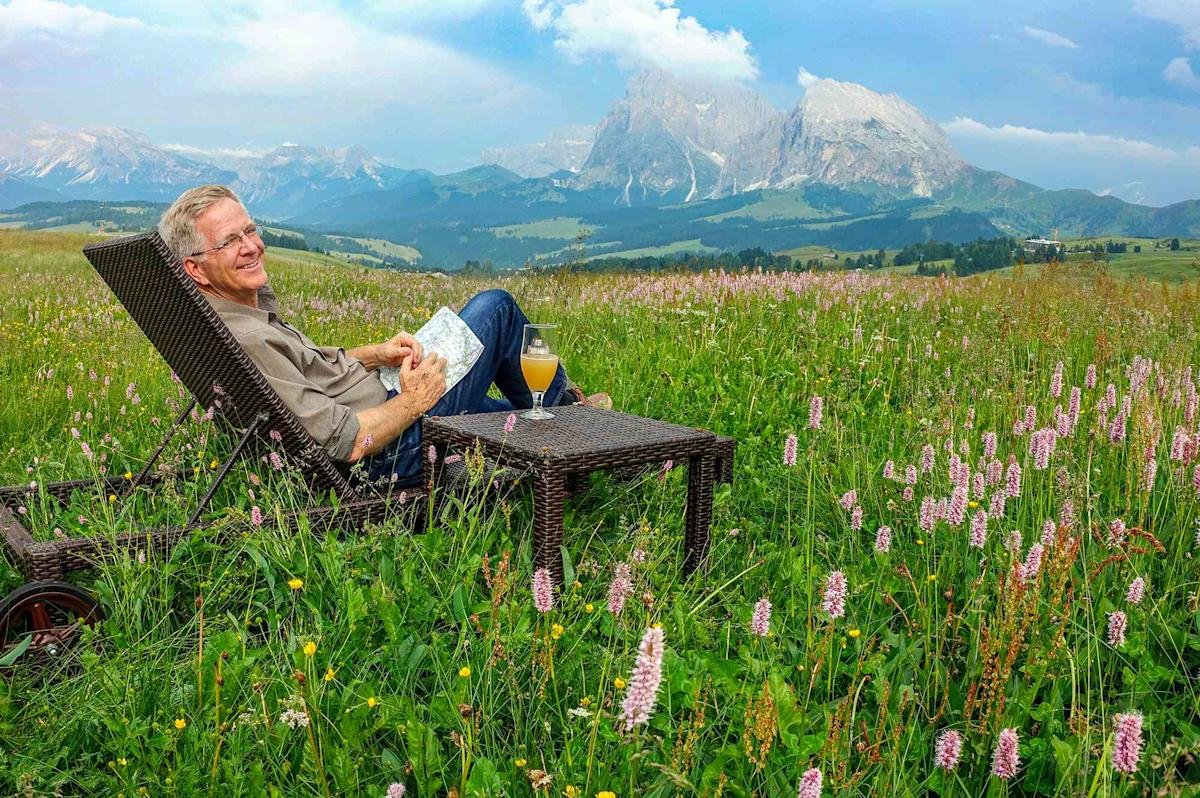Plus, a glimpse inside his new book, “On the Hippie Trail: Istanbul to Kathmandu and the Making of a Travel Writer.”
Don’t be fooled by Rick Steves’ easygoing charm—he’s a man with serious determination, especially when something sparks his curiosity. And that’s a wonderful thing for the rest of us.
Back in the mid-1970s, Steves was sitting in a University of Washington classroom, completely engrossed as his professor described traveling the Hippie Trail, an overland route stretching from Europe to Asia. Fascinated, Steves kept firing off questions—only to find that neither his professor nor any guidebooks at the time had the answers.
“That really stuck with me,” Steves told Travel + Leisure, admitting how disappointed he was that his professor didn’t have the details he wanted. “He dropped the ball.”
Luckily, Steves was ready to pick it up.
In 1978, he embarked on the first of many epic journeys, trekking the Hippie Trail and documenting every moment in his journal. “I wrote 60,000 words when I was 23,” Steves shared.
Now, we get to peek into those personal reflections—Steves has turned that journal into a new book, On the Hippie Trail: Istanbul to Kathmandu and the Making of a Travel Writer.
“It’s just my journal—that’s what makes it so cool,” Steves explained, calling the book “very candid, very unguarded.” “And that’s exactly what I wanted. I wrote this book for myself.”
Looking back at his younger, carefree days, Steves says the book is like an “anthropological” snapshot of who he was—as a man, a traveler, and a writer. “Reading it now, I see the notes of a travel writer in training,” he said. “I can spot the little seeds of everything I’ve built my career on since then.”
And what a career it’s been. For decades, he’s helped people shed their fears and explore the world through his tours, guidebooks, and TV show, teaching life’s most valuable lessons along the way. Because to Steves, travel is quietly political.
“Fear needs to be examined,” he said. “Fear is everywhere in our society today. Autocrats—left-wing or right-wing—use fear to manipulate voters, to weaken democracy. The antidote to fear is understanding. And we find understanding through travel.”
Steves even thinks we should rethink how we talk about travel.
“Back in the day, people would say, ‘Bon voyage—have a great trip.’ Now, it’s all, ‘Have a safe trip. Are you sure you want to go there, with everything going on?’” he said. “When someone tells me, ‘Have a safe trip,’ I’m tempted to reply, ‘Well, you have a safe stay at home.’”
Through this book—and his entire career—Steves wants to remind us that travel isn’t just safe; it’s soul-nourishing.
“Travel is safe. There’s nothing scary or dangerous about it. If you love your kids and understand the stats, you’d take them to Europe tomorrow,” he said. “Real safety doesn’t come from walls. It comes from bridges.”
But Steves goes beyond just telling people to travel—he urges them to dive deep into each destination.
“I don’t care about your bucket list. I don’t care how many countries you’ve checked off,” he said. “What matters is how many experiences you’ve had. That’s the goal—to live like a temporary local.”
That means embracing cultural quirks, even in small ways. “When I cross a border, I love becoming a cultural chameleon. Suddenly, I’m all about chocolate in Belgium. Suddenly, it’s whiskey in Scotland. Suddenly, I crave bold red wine in Tuscany. Suddenly, I’m sipping pilsner beer in the Czech Republic.”
Rick Steves on the Best Meal of His Life, His Favorite Country in the World, and What’s Next
His approach has paid off—for himself and his followers. “Last year, we took 30,000 people on our tours,” he noted.
After years of sharing wisdom, this new book might be his most inspiring message yet for young travelers.
“The lesson of On the Hippie Trail isn’t just that a 23-year-old vagabond named Rick Steves trekked from Istanbul to Kathmandu in 1978 and kept a journal. Sure, that’s neat—but what does it mean today?” he said. “It’s about coming of age, leaving home without a safety net, and seeing the world with total freedom.” And with his trademark laugh, he added, “It’s a good thing to do before you settle down and turn into the opposite of a hippie.”
Rick Steves’ Quick Travel Tips
- Pack light: “No checked bags allowed on our tours. You’re limited to 9 by 22 by 14 inches.”
- Embrace culture shock: “Don’t avoid it—culture shock is constructive. It’s the growing pain of a wider perspective, and it should be nurtured.”
- Leave your comfort zone: “Transformational travel means stepping outside what’s familiar. Be a cultural chameleon, and work to bring home the best souvenir—growth.”
- Do your homework: “Arm yourself with good info. That’s key. If you prepare, you can be your own guide.”
- Remember: “Fear is the opposite of understanding. Fear is everywhere today… Understanding is what we gain when we travel.”

Leave a Reply